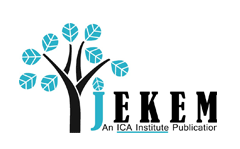Abstract
Modernization as development in the Post-War era was a compelling model for even critical scholars, as post-colonial societies sought growth and development as independent nations. This essay explores lessons from the Tanzanian case, in order to determine whether globalization is a similarly seductive, yet insufficient model for development in the current period. Looking at the intensive changes in Tanzania’s largely rural economy, from colonialism, to the ‘self-reliance’ of pre-villagization, and then Ujamaa or villagization, development and demographic trends and migration effects are analyzed. In light of these findings, implications for the contemporary period are considered. Demographic changes, urbanization, weak economic growth, declining real incomes and declining proportion of the population engaged in subsistence agriculture, all indicate the failures of past development plans, highlighting the need for new thinking in this era of globalization, which is just as subject to the vagaries of the world capitalist economic system as previous periods.
DOI
10.7885/1946-651X.1059
